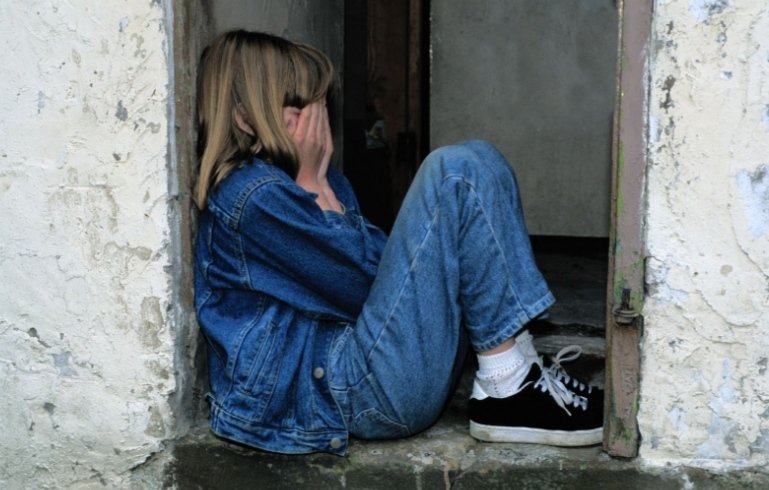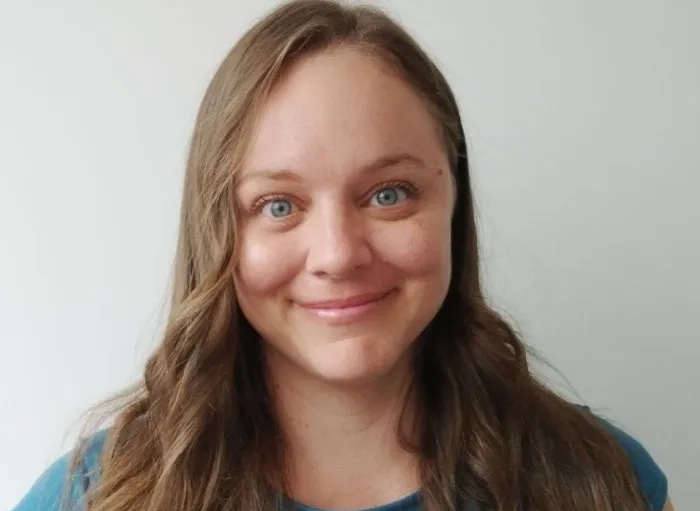*Trigger warning: Self-harm and suicide attempts
As a child, I remember being happy, I remember feeling safe, but after my parent’s divorce, I remember feeling so much anguish and pain. For me, self-injury was activated by my parent’s divorce. I was 11 years old when my mom left my dad. I could not process the intense emotions being that I was young and I did not have my dad around to support and love me.

From there on, I felt and was completely alone. I could not share how I felt with anyone. The perception I had of the world became increasingly dark and it terrified me. I escaped within my mind and when it was too much to bear, I would bang my head against the walls to release the intensity.
This intensity only grew and became something I could not manage without daily self-injury. I hurt myself in various ways trying to feel better, hoping to escape the sadness. It helped momentarily, but the relief never lasted. I kept my pain to myself and wore a smile at every opportunity, which in turn disguised what I truly felt within myself.
The restraining order on my dad made it so that my sisters and I could not see him for some time. Following that period of time, and when we could visit with my dad on Sundays, he stopped interacting with me. He had always been my best friend and we did everything together. I felt like a part of me had died and I remember constantly trying to bring back our relationship without any kind of success. As a result, I battled with extremely low self-esteem and self-worth believing that no one would want to have any kind of relationship with me.
I turned further into myself and when I was 17 years old, I made an attempt. I remember feeling so lost and without any hope. I suffered a concussion as a result of my actions and received staples to my head in the emergency room. Growing up, my only concept of mental health existed around my great-grandma Joy and her daughter, Caroline. They both had lived with schizophrenia and it wreaked havoc on their lives. When I was 8 years old, we stopped visiting them and I never saw them again. I understood schizophrenia to be something that people were afraid of and that anyone living with it was dangerous.
In the emergency room, I said that it had all been an accident. After getting the staples, I left a few hours later to recover from the concussion at home. I lived in guilt from that point on, fully aware of what could have happened that day, I could have inadvertently ended someone else’s life. Luckily, I was the only person injured, but the awareness of what could have been destroyed me every day for years. This caused me to struggle more with suicidal ideation and self-harm.
When I was 19 years old, my mom kicked me out of her home. The depression and psychosis intensified from there. I could see the police following me as I would drive to school, or work and I believed they were monitoring me because I was evil. I believed many things that were not in line with reality, I was hearing voices and seeing things that were not real or happening.
A couple of years later, I moved to Washington where I was hospitalized for a month in a psychiatric hospital with acute psychosis. I was behaving extremely child- like, I believed I was pregnant with the second coming of Christ and that my front tooth had a government implant to monitor my thoughts, among many other illogical beliefs and behavior. I also wanted to end my life and was on watch. After I was released, I moved back to California where I was re-hospitalized a couple more times. I‘ve spent months in psychiatric hospitals. The last time I was hospitalized and after I was released, I went to live with my aunt, uncle, and my cousins and that’s when my recovery started.
For many years, my life was defined by my poor mental health, but after getting the help and support I needed, things changed for me. I was no longer completely overwhelmed by my symptoms and I was in a place where I could see the possibility of me being happy. Even still, my sadness caught up with me and I found myself alone in my room one night contemplating another attempt. I cried at the thought of my family finding me. I vowed to myself that day that suicide was not the answer to my pain especially when it meant pain for my loved ones.
From then on, I was proactive with my recovery and started setting small goals for myself and worked hard towards achieving them. I think it was so important for my recovery to actively set goals and realize them because it continuously motivated me to do more, which then gave me more hope, and it just cycled like that. I noticed too that the suicidal ideation and self-harm decreased the more productive I became.

I started volunteering too because I felt a huge need to help and support others. I volunteered with Students with Psychosis and NAMI. I was with Students with Psychosis for a year and a half. I supported students one-on-one, facilitated groups, and did other tasks. Meeting several individuals who live with schizophrenia gave me a lot of hope and I felt like I was contributing something to the world. With NAMI, I shared my mental health recovery story with kids and adult students at various schools. Like setting goals, these experiences also motivated me to do more. By this point, I rarely had thoughts of suicide and no longer harmed myself.
During this time and for three years I actively supported people living with schizophrenia, and their loved ones, online through video chatting, phone calls, and messaging. This then led to my setting up a nonprofit to support people living with schizophrenia, and their families, in the US and Latin America who only speak Spanish.
Around this time, I found the Connection Center with form communities and took the CORE and Mental Health Peer Specialist training. I then interned with them. This was the best professional experience I have ever had. I started working as a contractor and now I’m working there full-time! The work I do with form communities is so important to me. It supports my recovery and keeps me in a good headspace. It’s important to find something that pushes you and makes you feel hopeful in life and for the future.
I met my husband, Alejandro, through my nonprofit. His love and support are a major part of my recovery too. I don’t feel alone nowadays at all and just in the last year and a half, I have grown in my love for myself with his unconditional support.

Life can be difficult and it comes with a lot of obstacles. This is why it’s important to continue pushing forward and doing the things that promote your overall wellness. Hope is very tangible and very much so alive. At the end of the day, nothing and no one is perfect, and I’ve learned to take life with its many imperfections. I’m imperfect, and every once in a while, I will experience suicidal thoughts, but I’m in a healthy space and these thoughts are just thoughts. They no longer dominate my mind and life and do not dictate my actions. Today I feel empowered, I feel alive, and I feel loved and that keeps me going every day. Thank you for reading!
~ Celia is a certified mental health peer specialist and program coordinator with form communities, formerly the San Antonio Clubhouse. She lives with schizophrenia and depression. Celia enjoys working out, spending time with her husband and her cat, and writing.

